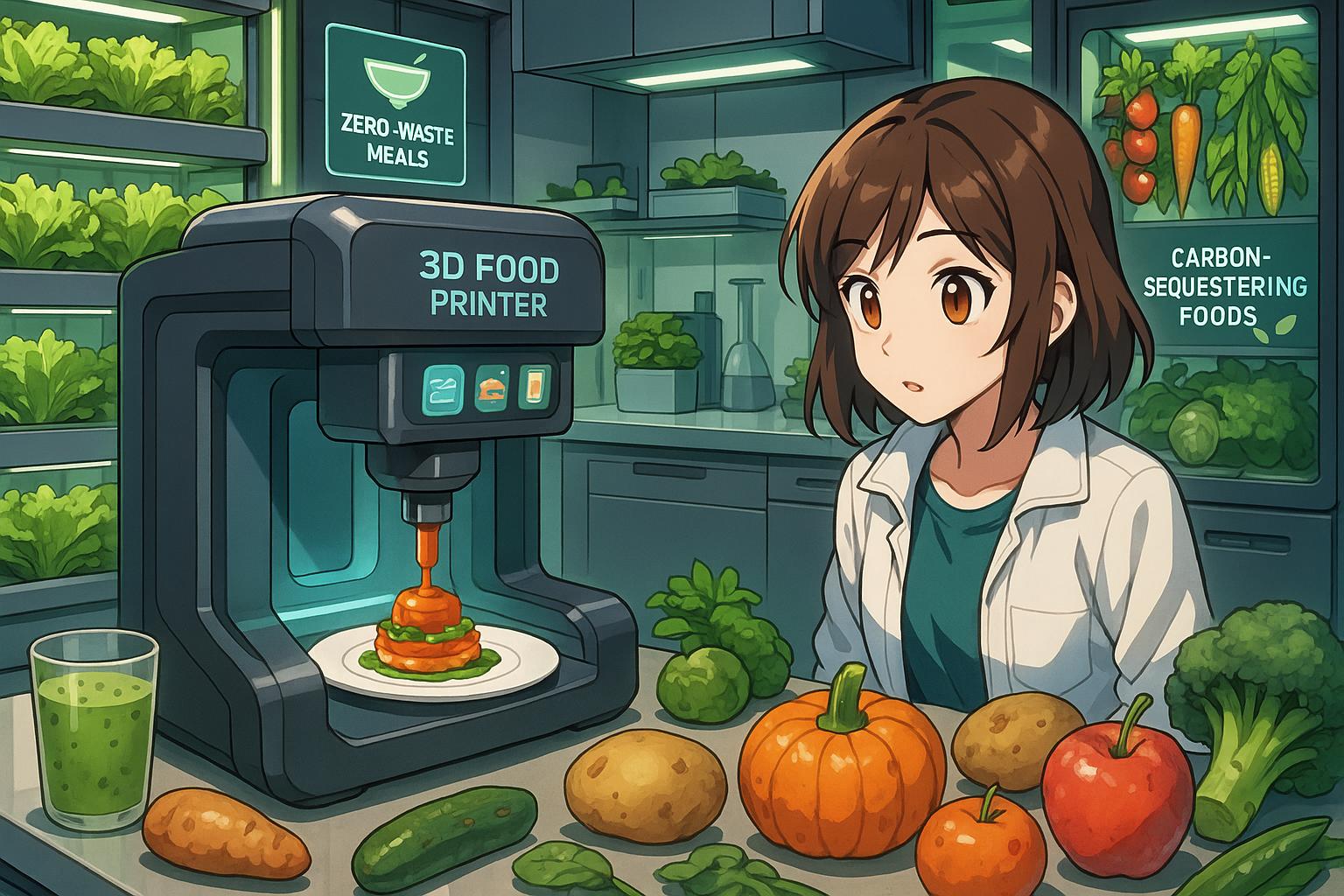As the world approaches a projected population of nearly 10 billion by 2050, the food industry stands at a pivotal juncture, poised to navigate significant challenges while also seizing unprecedented opportunities. This demographic explosion is anticipated to exacerbate existing issues such as poverty and food insecurity, placing immense pressure on the global food system. In response, food futurist Morgaine Gaye and Oxford climate scientist Joseph Poore have outlined a transformative vision for our diets and agriculture in the coming decades. Commissioned by meal delivery service HelloFresh, their insights reveal ten key trends that could redefine the way we eat and produce food by mid-century.
One of the most pressing concerns within the food system is waste. Currently, one-third of all food produced is wasted, contributing to a staggering 10% of global greenhouse gas emissions. Gaye and Poore predict that by 2050, advances in artificial intelligence will play a critical role in combating this issue. Through AI-driven meal planning and inventory management, households will utilise 'imperfect' produce more effectively, turning what would have been discarded into culinary delights like broccoli stem rice. The notion of zero-waste kitchens, where leftovers are transformed via 3D food printers into entirely new dishes, could revolutionise our approach to food preparation.
In tandem with waste reduction, Gaye and Poore foresee a future where foods actively mitigate climate change. Currently, the agricultural sector is responsible for roughly a third of global emissions, with livestock accounting for 57% of that figure. Experts predict a significant reduction in meat consumption by 2050, with carbon-sequestering foods such as nuts, seaweed, and even bacterial proteins stepping into the spotlight. These innovative ingredients not only absorb carbon but may also help address issues like methane emissions, creating a more sustainable food landscape.
Climate change itself is likely to reshape our agricultural practices and crop diversity. In 2050, regions such as the Mediterranean could become new havens for tropical fruits, while traditional staples like wheat may struggle in their current locales due to changing climatic conditions. As Poore highlights, “We’ll need to eat a diet lower in animal products to avert severe global warming,” which may prompt a revival of heritage crops well-suited to local environments. These indigenous foods, long overlooked, could contribute to greater agricultural resilience.
Compellingly, Gaye and Poore anticipate that the hyperlocalisation of food production will gain traction, potentially signalling the decline of supermarkets as we know them. With AI technologies enabling precise meal preparation and ingredient sourcing, weekly grocery shopping may become obsolete. Instead, personalised meal kits could dominate, fostering a new kind of market dynamic where supermarkets transform into social hubs, offering experiences centred around the joy of tasting and meeting others rather than merely transacting.
Moreover, the integration of food and health is expected to advance considerably, with food increasingly viewed as a form of medicine. By leveraging genetic testing and continuous microbiome analysis, individuals may receive tailored dietary recommendations aimed at improving their health outcomes. This seamless integration of technology into dietary planning heralds a future where health and nutrition become intrinsically linked, enabling optimised living through informed food choices.
In a surprisingly social turn, communal eating practices are forecasted to flourish alongside these trends. As cooking becomes increasingly automated, communities may gravitate towards shared culinary experiences, establishing neighbourhood growing clubs and cooperative meals that foster connections beyond mere sustenance. In this scenario, the act of eating evolves into an emotional and sensory celebration, steeped in tradition and interpersonal bonding.
Urban agriculture, once a niche, is poised to become the norm, with vertical farms and at-home growing units powered by renewable energy becoming mainstream. Gaye and Poore even speculate about thrilling innovations like clothing designed to grow food, thereby allowing individuals to remain self-sufficient while on the move. The implications of such advancements are profound, suggesting a shift in how we perceive food cultivation and consumption in urban settings.
Finally, in alignment with the global push for sustainability, the future may herald a zero-waste paradigm in food packaging. Edible packaging and advanced preservation techniques could minimise waste, while full-scale transparency about food origins through blockchain technology could empower consumers to make environmentally conscious choices. As Poore notes, “Our diets may look different in 2050, but perhaps not in the way people might think.”
In summary, as we stand on the brink of this transformative era, the vision outlined by Gaye and Poore paints an optimistic picture of a future where food production not only meets growing demands but does so in a manner that is ecologically and socially responsible. Emphasising sustainability, community, and a symbiotic relationship with our environment may very well serve as the bedrock of the dinner plates we will enjoy 25 years from now. The convergence of innovative technologies, changing societal norms, and a renewed focus on environmental stewardship positions us for a future the likes of which we have only begun to imagine.
Reference Map
- Article summarising predictions for the future of food by 2050.
- Insights on food waste reduction and AI's role.
- Discussion on sustainability in food production and emissions.
- The significance of the food industry's role in climate change and the need for alternative proteins.
- Additional predictions about vertical farming and lab-grown foods.
- Examination of solutions for feeding a growing population.
- Insights on how the food industry might reduce carbon emissions.
Source: Noah Wire Services
